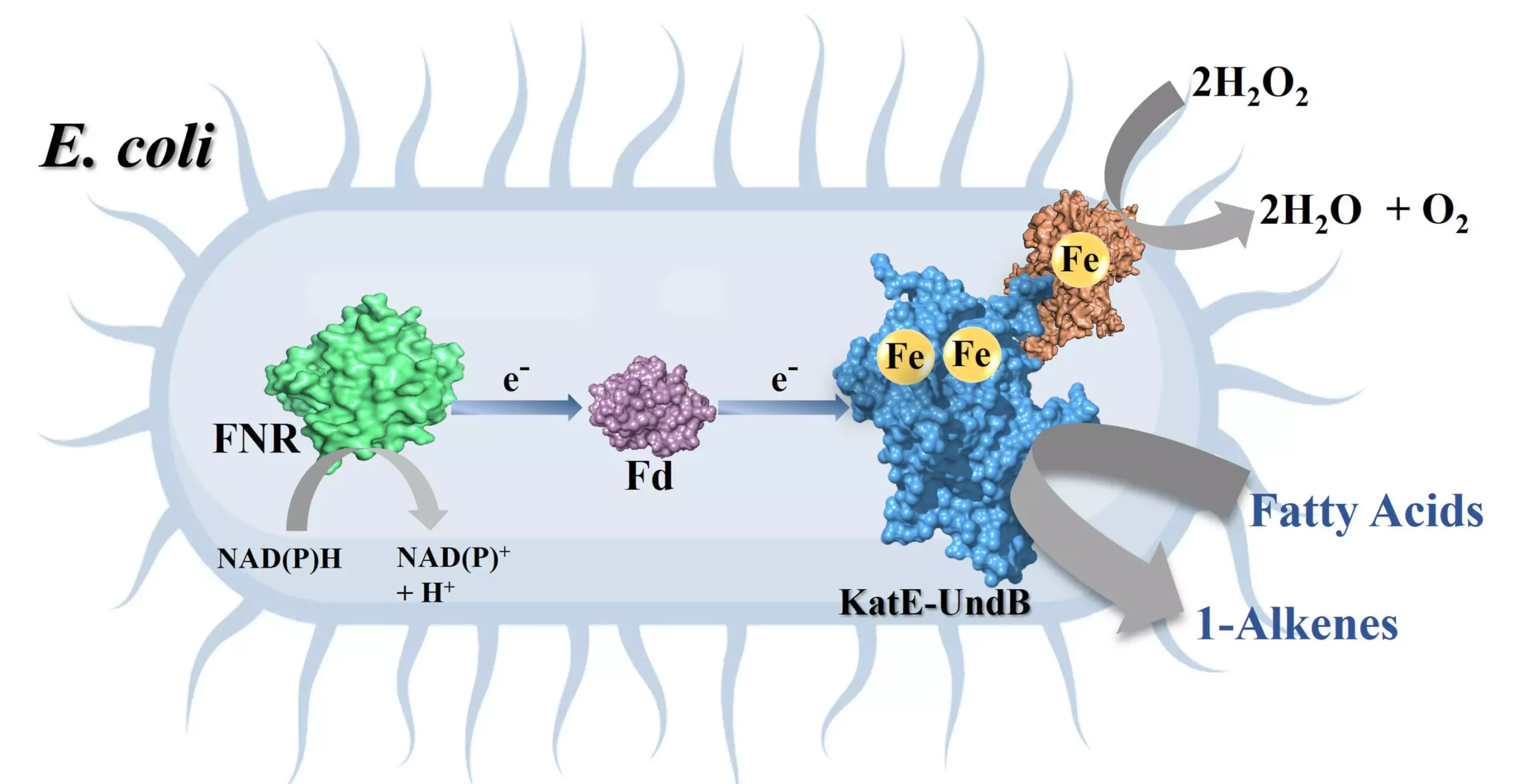As the world grapples with the repercussions of climate change and dwindling fossil fuel reserves, the call for alternative energy sources has never been more urgent. Traditional fossil fuels not only contribute to environmental degradation but are also finite resources, making it essential for scientists to explore sustainable and eco-friendly energy pathways. One such avenue under exploration is the transformation of fatty acids into hydrocarbons—specifically 1-alkenes—which promise to be viable biofuels and key components in various industries.
Recent developments by researchers at the Indian Institute of Science (IISc) shed light on a potential breakthrough in this area. Their work involves an enzymatic platform capable of converting naturally occurring and economically viable fatty acids into valuable hydrocarbons. This innovative approach has implications that extend beyond biofuels, potentially impacting sectors ranging from plastics to lubricants.
A New Era of Biocatalysis
The IISc team’s research provides a pertinent example of how enzymes can be leveraged to mass-produce hydrocarbons. Previous studies highlighted the utility of an enzyme called UndB, known for its unique capability to convert fatty acids into 1-alkenes at previously unattainable rates. However, a significant hurdle emerged: the rapid inactivation of UndB after a few cycles due to the formation of hydrogen peroxide (H2O2) during the enzymatic reaction.
Rather than abandoning hope in UndB, the researchers took an ingenious approach. By incorporating catalase—a well-known enzyme that decomposes hydrogen peroxide—the team was able to enhance UndB’s effectiveness by an astonishing 19-fold. This change not only resolved the inhibition problem but also indicated a pathway for engineered enzymes to work synergistically in biofuel production.
Pioneering Fusion Proteins for Enhanced Efficiency
Inspired by the surprising enhancement of UndB’s activity, the IISc team expanded upon their findings by creating an artificial fusion protein comprising UndB and catalase. This fusion, introduced into E. coli via plasmids, has the potential to act as a “whole cell biocatalyst.” Such innovation positions bacteria to facilitate the efficient conversion of fatty acids into 1-alkenes while reducing the byproducts typically associated with enzymatic reactions.
However, this endeavor was not without its challenges. Membrane proteins, like UndB, are notoriously difficult to manipulate due to their toxicity at high concentrations and their hydrophobic nature, which complicates their solubility in aqueous environments. These attributes posed a significant barrier to comprehensive research and application. Nonetheless, the IISc team persevered, exploring the role of redox partner proteins to improve electron transport to UndB. Their efforts culminated in the successful incorporation of ferredoxin, ferredoxin reductase, and nicotinamide adenine dinucleotide phosphate (NADPH), leading to conversion efficiency skyrocketing to an impressive 95%.
The Promise of 1-Alkenes Beyond Biofuels
One of the standout features of the team’s biocatalyst is its specificity. Unlike other processes that result in unwanted byproducts, this engineered system produces pure 1-alkenes, making it a valuable asset in various industries, including biochemistry and polymer manufacturing. The versatility of the biocatalyst extends to a wide range of fatty acids, suggesting that this innovative platform could be tailored for diverse applications, including the synthesis of high-demand materials like styrene.
Debasis Das, an Assistant Professor at IISc, emphasizing the significance of their engineered protein, maintains a forward-looking vision for this research. With a patent application in progress, the team is actively seeking industry collaborations to transition from laboratory research to mass-production capabilities. This translational step is crucial for making sustainable biofuels a tangible option for industries reliant on hydrocarbons.
In a time where sustainable practices are imperative, the advancements made by the IISc team underscore the vital intersection of technology and environmental stewardship. Their innovative use of enzymatic processes in biofuel production not only presents a compelling alternative to fossil fuels but also aligns with the overarching goal of attaining a greener, more sustainable future. The implications of this research could reshape our approach to energy consumption and production, marking a significant stride toward a cleaner planet.

